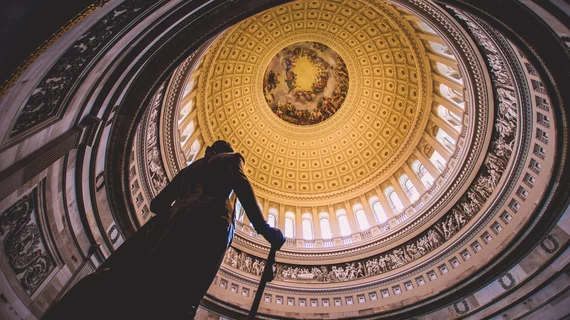Senate finalizes radiologist relief from Medicare cuts, sending final bill to president
The U.S. Senate finalized healthcare legislation Thursday night that gives radiologists and other providers relief from Medicare reimbursement cuts that would have taken effect Jan. 1.
Lawmakers passed the “Protecting Medicare and American Farmers from Sequester Cuts Act” in a 59-34 vote following its approval Tuesday in the House. The bill now heads to the desk of President Joe Biden, who is expected to sign it.
Absent such action, the American College of Radiology said, the cuts would have threatened patients’ access to imaging, deepening disparities in rural and urban areas.
“We are thankful Congress intervened to provide stability within the healthcare system for both patients and healthcare providers,” Howard Fleishon, chair of ACR’s Board of Chancellors, said in a statement. “However, we must begin to look beyond these short-term fixes. The ACR looks forward to working with Congress to address the ongoing structural problems associated with Medicare’s broken payment system.”
“This is an important victory for physicians and patients,” Bob Still, executive director of the Radiology Business Management Association, said Thursday night. “It is a recognition of the critical importance radiologists and other healthcare providers in this time of an ever-present public health emergency. We must now challenge the house of medicine and Congress to resolve these annual reimbursement inequities.”
The Senate’s vote ends months of fierce lobbying to address pay cuts of 10.75% expected to hit diagnostic radiology in 2022. RBMA estimated the reimbursement reduction will now equal about 3% for the specialty, but higher on the interventional side. Providers will now net a one-year, 3% increase in the Medicare Physician Fee Schedule, short of the 3.75% some had sought.
In addition, the legislation will delay 2% Medicare sequester payment reductions for the first three months of 2022, transitioning to a 1% cut in the three months afterward. It will also delay payment reductions tied to the clinical laboratory fee schedule, postpone the radiation oncology payment model and pause the 4% PAYGO cut—all until 2023.

